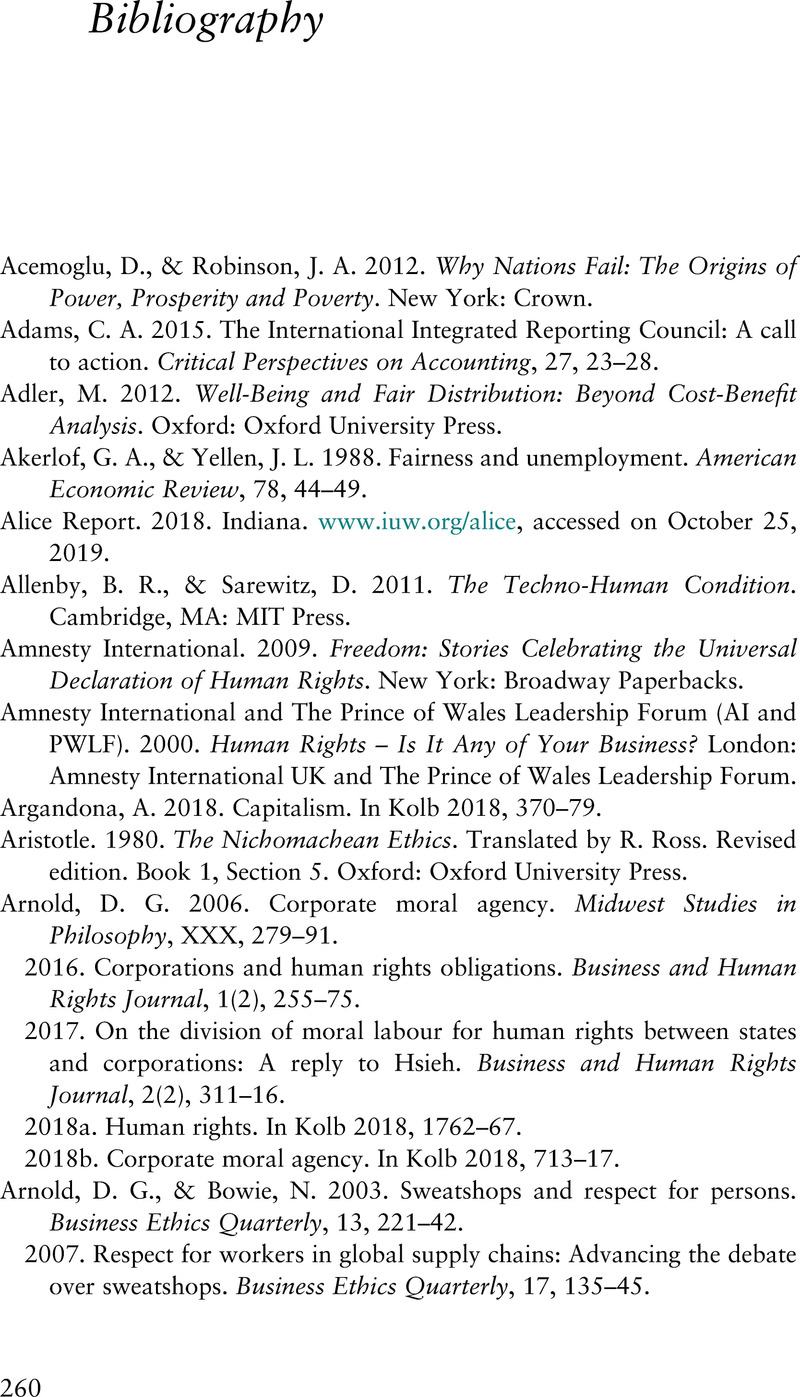Book contents
- Reviews
- Corporate Responsibility for Wealth Creation and Human Rights
- Corporate Responsibility for Wealth Creation and Human Rights
- Copyright page
- Dedication
- Contents
- Figures, Tables and Boxes
- Preface
- Acknowledgments
- 1 Introduction and Overview
- 2 The Context of Globalization, Sustainability and Financialization
- Part I Wealth Creation
- Part II Human Rights as Public Goods in Wealth Creation
- Part III Implications of Wealth Creation and Human Rights for Corporate Responsibility
- Bibliography
- Index of Names
- Index of Subjects
- References
Bibliography
Published online by Cambridge University Press: 11 January 2021
- Reviews
- Corporate Responsibility for Wealth Creation and Human Rights
- Corporate Responsibility for Wealth Creation and Human Rights
- Copyright page
- Dedication
- Contents
- Figures, Tables and Boxes
- Preface
- Acknowledgments
- 1 Introduction and Overview
- 2 The Context of Globalization, Sustainability and Financialization
- Part I Wealth Creation
- Part II Human Rights as Public Goods in Wealth Creation
- Part III Implications of Wealth Creation and Human Rights for Corporate Responsibility
- Bibliography
- Index of Names
- Index of Subjects
- References
Summary

- Type
- Chapter
- Information
- Corporate Responsibility for Wealth Creation and Human Rights , pp. 260 - 293Publisher: Cambridge University PressPrint publication year: 2021

